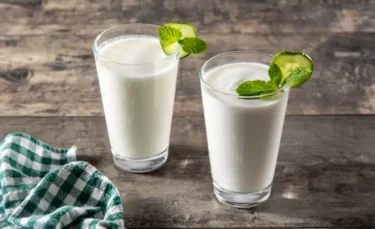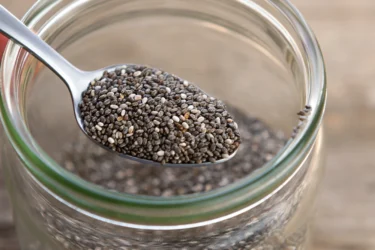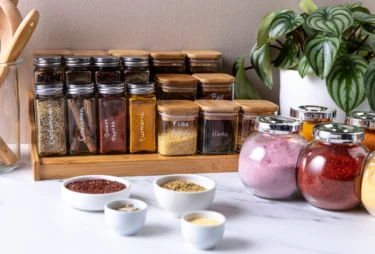
Introduction
Being a foodie is common among Indians and so are digestive issues. Indigestion, gas, bloating, hiccups, heartburn, stomach pain, ulcers, and nausea are some of the common features of digestive problems. These are the frequent problems arising from an unhealthy lifestyle, which includes binge eating, smoking, drinking alcohol, sleep disorders, eating junk, and stress.
The discomfort makes these problems hard to ignore, but it is also not convenient to visit the doctor or pharmacy so frequently for the recurring problems.
While some medical conditions may lead to digestive issues, some of the most common causes of digestive issues include lifestyle factors like stress, excessive dairy consumption, an inactive lifestyle, and inadequate fibre in the diet.
Top Causes of Digestive Problems
Gastrointestinal problems are commonly caused by:
- Inadequate fibre in the diet
- Lack of regular physical activity or a sedentary lifestyle
- Travel or any other drastic changes to your routine
- Excessive consumption of dairy products
- Chronic and unmanaged stress
- Not passing stools regularly (possibly due to pain or haemorrhoids)
- Consumption of painkillers, antidepressants, medications that are rich in iron, antacids that contain calcium or aluminium, or excessive amounts of diarrhoea medication
- Pregnancy
Foods That May Cause Digestive Problems: Carbonated drinks, beans, artificial sweeteners, potatoes, pasta, eating or drinking too fast, using a straw, and swallowing excessively.
Diseases That May Cause Digestive Problems: Lactose allergy, gluten allergy, irritable bowel syndrome (IBS), Crohn’s disease, gastroesophageal reflux disease (GERD), and peptic ulcers.
Frequent episodes of digestive troubles can be attributed to various factors such as IBS, infection, neurological issues, or hormonal imbalances. Often, these symptoms are intertwined with signs of anxiety.
Dr. Arpit Verma, MBBS, MD (Pharmacology)
Symptoms of Digestive Problems
- Acid reflux (burning in the throat)
- Heartburn
- Bloating, gas, or belching
- Bad breath
- Nausea
Home Remedies for Digestive Problems
The symptoms of digestive problems are usually mild and short-lived and may not require medication; however, there are some simple home remedies that can help you reduce the symptoms. So, here are some home remedies that may relieve your digestive problems.
1. Taming Your Tummy With Tea
A lot can happen with a cup of tea. Although, targeting the root cause of your digestive problems is the best approach, if you need relief for minor stomach issues and temporary bouts of discomfort, then here is a warm cup of tea that may save your day.
You can prepare these teas by brewing one or more herbs commonly found in the kitchen, as listed below. You may also add honey to some of the teas.
- Fennel: This tea is made by boiling the green seeds of fennel, locally called saunf, in a cup of water for 3-5 minutes. It can help in relieving bloating, heartburn, gas, loss of appetite, and bowel irregularities, as well as may help in relieving colic in infants. The tea also has antibacterial properties1.
- Chamomile Tea: It is made by boiling the dried daisy-like flowers of chamomile in water. It possesses anti-inflammatory and mind-calming properties. Drinking it before meals and at bedtime may help reduce indigestion2, bloating, trapped gas and tummy cramps.
- Ginger Tea: It is made by boiling a piece of fresh ginger root in water. The main constituent in ginger is gingerol, which has antioxidant and anti-inflammatory properties. Drinking it before or with a meal may stimulate the secretion of saliva, digestive juices and bile production, and neutralise gastric acid3.
Other ingredients, such as ajwain (carom seeds), caraway (shahi jeera), liquorice (mulethi), and holy basil (tulsi) can also be brewed along with ginger to help ease digestive issues like indigestion, gas, bloating, cramps and nausea.
2. Beverages That Can Soothe Your Stomach
Some other drinks that may relieve digestive issues include:
- Cold Milk: Drinking a glass of cold, fat-free and sugarless milk may provide relief from the burning sensation from acidity or acid reflux. Milk contains calcium that not only may neutralise acid but also curb its production.
- Buttermilk: Drinking cold buttermilk before or during meals is an age-old home remedy against stomach gas. It aids in neutralising gastric acid, thus helping in reducing irritation and damage to the stomach lining. Also, it’s a naturally occurring probiotic drink that may stimulate digestion, avoid the building up of gas, and relieve bloating4. One may also add a pinch of roasted cumin powder and black salt to buttermilk to further enhance its effectiveness against digestive troubles. Even lactose-intolerant patients can easily digest it.
- Mint Juice: One teaspoon of mint juice or mint tea or mint chutney in your meal may help you with bloating and the resulting stomach pain.
- Lemon Drinks: Lemon water or lemon tea can be a wonderful remedy for digestive problems5. You can add a pinch of black salt, powdered roasted cumin seeds, and ajwain to the lemon water to enhance its taste and benefits and soothe the stomach. Adding a pinch of baking soda to a glass of lemon water may also prove beneficial in reducing acidity and improving digestion.
- Other Drinks: Adding apple cider vinegar or clove oil (2-5 drops) to water or tea and drinking it before, during or after meals may also help in relieving digestive problems6.
3. Strengthening the Mucilage in the Stomach
Mucilage is a slimy and slippery substance found in certain plants. The mucilaginous substance swells in water and is bland in taste. When consumed, it forms a protective layer over the inflamed lining or sore surface of the stomach that not only protects it from further damage by acid but also aids in its healing. Few examples are listed below:
- Ispaghula or Psyllium Husk: Ispaghula, commonly known as isabgol, can help you manage digestive troubles and constipation. Consuming it with curd helps in relieving stomach upset, indigestion and loose stools. Having it with cold milk helps in the symptoms of acid reflux7.
- Chia Seeds: Chia seeds have anti-inflammatory properties and aid in the symptoms of acid reflux. They are also rich in nutrients, fibre and omega-3 fatty acids. Chia seeds can be added (after soaking them in water) to foods and drinks like cold beverages, smoothies, fruit juices, yoghurt, porridge, and puddings.
4. Pacifying Powders for the Stomach
People with an upset stomach, gas, acidity, heartburn and other digestive troubles may also get relief by directly consuming powders of ingredients from the kitchen, such as fennel seeds, carrom, caraway, and coriander. Few examples are listed below:
- Adding green cardamom powder, fennel seeds powder, and unrefined sugar in equal parts in a glass of cold milk may offer relief if you have heartburn or acidity.
- A fine powder of cumin seeds, coriander seeds, and sugar twice daily with water may help with acidity.
5. Topical Creams and Pastes to Ease the Stomach
In cases, where one cannot drink or do not feel like consuming anything, the following approach may benefit in relieving the symptoms of digestive trouble.
- Asafoetida Massage: Massaging the abdomen gently with asafoetida water prepared by mixing asafoetida, commonly known as hing, with a few drops of warm water may relieve stomach pain caused by gas.
- Stomach Pain-Relieving Paste: The paste is prepared by mixing finely powdered dried ginger (sonth), long pepper (pippal), black pepper (kali mirch), asafoetida (hing) and rock salt (sendha namak) with a few drops of water. Gently warming this paste and applying it to the abdomen for two hours may provide relief from abdominal pain due to gas.
Also Read: Causes Behind Recurring Stomach Pain
Other Remedies to Consider
Here are a few remedies you can try apart from the ones mentioned above:
- Drink water: Water is essential for digestion. Ensure that you are drinking enough water every day. This is one of the easiest home remedies for digestive problems.
- Avoid Lying Flat: Lying flat causes the stomach acid to rise up and worsen your digestive symptoms. Use a pillow or an inclined backrest when you sleep.
- Try the BRAT diet: The BRAT diet consists of foods that are easy on the stomach like bananas, crackers, oatmeal, mild tea, boiled potatoes and broth.
- Cinnamon, Cloves, Cumin: These spices are believed to reduce inflammation, calm the stomach lining, and stimulate faster digestion along with increased bile secretion.
- Figs: Figs may help reduce the acidity of your stomach secretions; however, eat them in moderation as excessive amounts could make your digestive problems worse.
- Aloe Vera Juice: Aloe juice may be useful in reducing acid reflux.
- Basil: It may help reduce gas formation and could have anti-ulcer properties.
- Liquorice: It is believed to help digestive issues and may protect the stomach lining from ulcers8.
- Coconut water: It may help reduce the pain from digestive issues as it contains ample amounts of magnesium and potassium.
- Yarrow: It is traditionally used to reduce the production of stomach acid.
- Ajwain Seeds: Ajwain seeds contain thymol, which may aid in quicker digestion and may reduce bloating9.
- Triphala Powder: Steeped in water and consumed at night, this herbal powder may help with digestive issues like IBS10.
If a person has recurrent gastritis, then along with using home remedies, they should definitely visit their physician who can give them a treatment regimen for the bacteria Helicobacter pylori (one of the causes of gastritis).
Dr. Nikhil Yadav, MBBS MD,CCEBDM
Also Read: Natural Home Remedies for Open Pores
How to Avoid Long-Term Digestive Problems
As mentioned in the beginning, digestive issues are caused by a variety of dietary and lifestyle choices. The discomfort and pain of digestive problems may be mitigated by simply cutting out these harmful factors from your life. Limiting the intake of or quitting coffee, soft drinks, alcohol, tobacco, smoking, and excessive junk foods will go a long way towards curtailing the risk of stomach-related health conditions.
Healthy habits like eating regularly, avoiding binge eating, sleeping regularly, and getting some form of physical exercise daily can further lower your chances of developing a digestive problem in the long term. Stay away from foods that are hard to digest as well as acidic foods like lime and baking soda.
It should be noted that some people may experience digestive issues like GERD or other serious gastrointestinal conditions despite maintaining a healthy lifestyle. This may be unavoidable and the only solution is to seek professional medical treatment. The above-mentioned home remedies may provide relief from occasional bouts of gas and other symptoms of digestive troubles. However, if they fail to provide, relief then one must seek medical help immediately.
Also Read: Natural Home Remedies for Food Poisoning
Frequently Asked Questions (FAQs)
What are some of the common symptoms of GERD? Some common symptoms of GERD include heartburn, chest pain, difficulty swallowing, and regurgitation of food or sour liquid. It may also cause chronic cough, disrupt sleep, or worsen asthma if you have acidity at night-time.
When should one see a doctor for digestive problems? One should seek immediate medical care if he or she experiences chest pain, shortness of breath or jaw or arm pain. If you experience severe or frequent GERD symptoms and take over-the-counter medications frequently or if home remedies are not working for you, you must consult a doctor.
Can smoking lead to digestive problems? Yes, smoking contributes to many common disorders of the digestive system, such as heartburn and GERD.
References
- Chen B, He Y, Xiao Y, Guo D, Liu P, He Y, Sun Q, Jiang P, Liu Z, Liu Q. Heated fennel therapy promotes the recovery of gastrointestinal function in patients after complex abdominal surgery: A single-center prospective randomized controlled trial in China. Surgery. 2020 Nov;168(5):793-799. doi: 10.1016/j.surg.2020.05.040. Available from: https://pubmed.ncbi.nlm.nih.gov/32682507/
- Srivastava JK, Shankar E, Gupta S. Chamomile: A herbal medicine of the past with bright future. Mol Med Rep. 2010 Nov 1;3(6):895-901. doi: 10.3892/mmr.2010.377. Available from: https://pmc.ncbi.nlm.nih.gov/articles/PMC2995283/
- Nikkhah Bodagh M, Maleki I, Hekmatdoost A. Ginger in gastrointestinal disorders: A systematic review of clinical trials. Food Sci Nutr. 2018 Nov 5;7(1):96-108. doi: 10.1002/fsn3.807. Available from: https://pmc.ncbi.nlm.nih.gov/articles/PMC6341159/
- Nirgude R, Binorkar SV, Parlikar GR, Kirte MC. Therapeutic and nutritional values of takra (buttermilk). Int Res J Pharm. 2013 Feb;4(2):29–31.Available from: https://www.researchgate.net/publication/304534184_Therapeutic_and_nutritional_values_of_takra_buttermilk
- Freitas D, Boué F, Benallaoua M, Airinei G, Benamouzig R, Lutton E, Jourdain L, Dubuisson RM, Maître X, Darrasse L, Le Feunteun S. Glycemic response, satiety, gastric secretions and emptying after bread consumption with water, tea or lemon juice: a randomized crossover intervention using MRI. Eur J Nutr. 2022 Apr;61(3):1621-1636. doi: 10.1007/s00394-021-02762-2. Available from: https://pubmed.ncbi.nlm.nih.gov/35013789/
- Xia T, Kang C, Qiang X, Zhang X, Li S, Liang K, Wang Y, Wang J, Cao H, Wang M. Beneficial effect of vinegar consumption associated with regulating gut microbiome and metabolome. Curr Res Food Sci. 2023 Aug 24;8:100566. doi: 10.1016/j.crfs.2023.100566. Available from: https://pmc.ncbi.nlm.nih.gov/articles/PMC10792460/
- Munshi R, Bhalerao S, Rathi P, Kuber VV, Nipanikar SU, Kadbhane KP. An open-label, prospective clinical study to evaluate the efficacy and safety of TLPL/AY/01/2008 in the management of functional constipation. J Ayurveda Integr Med. 2011 Jul;2(3):144-52. doi: 10.4103/0975-9476.85554. Available from: https://pmc.ncbi.nlm.nih.gov/articles/PMC3193686/
- Jalilzadeh-Amin G, Najarnezhad V, Anassori E, Mostafavi M, Keshipour H. Antiulcer properties of Glycyrrhiza glabra L. extract on experimental models of gastric ulcer in mice. Iran J Pharm Res. 2015 Fall;14(4):1163-70. Available from: https://pmc.ncbi.nlm.nih.gov/articles/PMC4673944/
- Boskabady MH, Alitaneh S, Alavinezhad A. Carum copticum L.: a herbal medicine with various pharmacological effects. Biomed Res Int. 2014;2014:569087. doi: 10.1155/2014/569087. Epub 2014 Jun 25. Available from: https://pmc.ncbi.nlm.nih.gov/articles/PMC4096002/
- Tarasiuk A, Mosińska P, Fichna J. Triphala: current applications and new perspectives on the treatment of functional gastrointestinal disorders. Chin Med. 2018 Jul 18;13:39. doi: 10.1186/s13020-018-0197-6. Available from: https://pmc.ncbi.nlm.nih.gov/articles/PMC6052535/
Disclaimer: The information provided here is for educational/awareness purposes only and is not intended to be a substitute for medical treatment by a healthcare professional and should not be relied upon to diagnose or treat any medical condition. The reader should consult a registered medical practitioner to determine the appropriateness of the information and before consuming any medication. PharmEasy does not provide any guarantee or warranty (express or implied) regarding the accuracy, adequacy, completeness, legality, reliability or usefulness of the information; and disclaims any liability arising thereof.
 127
127
 8
8 

































Thank you for your feedback, glad you liked it.
Wonderful publish, very informative. I wonder why the opposite experts of this sector don’t realize this.
You should proceed your writing. I’m confident, you’ve a huge readers’ base already!
When someone writes an article he/she retains the thought of a user in his/her brain that how a user can understand it.
Therefore that’s why this post is perfect. Thanks!
Thank you for your feedback. We appreciate it.